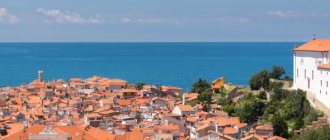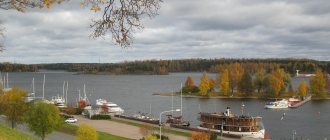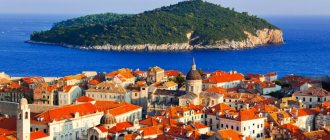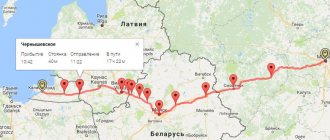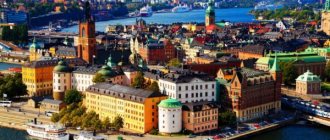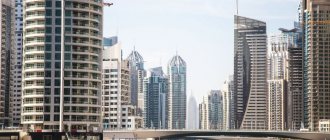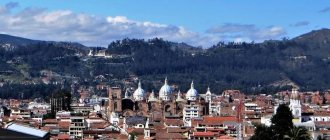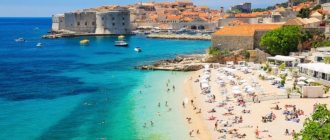Standard of living in Lithuania
In terms of living standards, the Lithuanian state is weaker than the Baltic countries of Estonia and Latvia. But if you look at wages, it can compete with them. The dynamics of earnings progresses every year. This is largely due to an artificial increase in salaries, but economic growth cannot be ruled out. Such indicators effectively influence the labor market and emigration, which helps to deter Lithuanians from moving to Western Europe and also to interest qualified foreigners.
After the transition to the European Union, the market economy stabilized and inflation dropped to 2.6%. According to the World Bank, Lithuania is a mixed economy with a high level of income, where the main sectors are services, industry, and agriculture. In the ranking of world economic competitiveness, the state occupies 41st place out of 137, and low external debt is immediately taken into account.
Considering the Baltics from a demographic point of view, the situation is complex; almost 50% of the residents are pensioners. Natural population growth is negative. Since Lithuania entered the Schengen zone, 2 million Lithuanians have left for the UK, Germany, Norway, and Ireland. This situation has changed migration policy in a positive direction. The government has become loyal to labor migrants, displaced persons, refugees, and Lithuanians from other countries.
Pros and cons of emigrating to Lithuania for permanent residence

Visiting the Republic of Lithuania as a tourist may differ from permanent residence. For a realistic assessment, we advise you to consider the pros and cons of moving.
Pros of moving
According to Russians living there, the main advantages of Lithuania are:
- Entry into the European Union. This is probably the main event that Lithuanians have been waiting for for many years. Finally, in 2004, the European Parliament approved the application, and Lithuania took its place on the list of participants. Since that moment, numerous reforms have taken place, the national currency has changed to the euro, and major Eurozone players have invested in the economy. This policy helped to cope with the financial crisis, unemployment, and social insecurity. Today, Lithuania is confidently moving towards its goal of matching Western Europe. Democratic conditions and free entry into the Schengen zone are increasing immigration from developing countries.
- Climate and nature. The weather conditions are favorable compared to Latvia and Estonia, with warm summers and mild winters. Climatic conditions coincide with the Kaliningrad region of the Russian Federation. Many Russians from this area like this similarity and try to move to a neighboring state. The average temperature in winter is –5 degrees, in summer +17 degrees. There are quite a lot of sunny days, locals take advantage of this and go to the Baltic Sea coast and lakes. There are 3,000 lakes on the territory, around plains, green forests - nature is very reminiscent of Russian.
- Affordable prices. The cost of food, clothing, and entertainment is not high. Real estate is noticeably lower than in Russia; you can sell an apartment and buy good housing without overpaying, as in Poland and Estonia.
- Diverse infrastructure. There are many places in Lithuania where you can feel Europe, and there are also many places where you can feel the post-Soviet space. Every Lithuanian city, in addition to historical centers, buildings, and architecture, has modern districts. They often host cultural, musical events, and theatrical performances. Bohemian neighborhoods such as Užupis are home to artists, writers, and designers.
Cons of moving
The most commonly cited disadvantages are:
- Low salaries. Salaries of €600-1000 are not particularly of interest to qualified emigrants from Russia; they can be obtained in their native state. With such salaries, it is unlikely that the state will be able to attract professionals, so programmers and top managers do not particularly consider the Baltic states.
- Attitude towards Russians. In recent years, Russian-language schools have been closing in Lithuania - the authorities are doing everything possible to eradicate the Russian language. Thus, compatriots who had been living there for a long time began to feel limited.
- Public utilities. Despite the low cost of housing, utilities amount to €140-150 per month. This includes electricity, heating, cooling, warm and cold water, and garbage removal. Internet is paid separately in the amount of €11 for 60 MB per month.
- Employment. Lithuanian employers prefer to hire Lithuanians for good positions; specialists with Russian or Ukrainian education will have to undergo retraining. After emigration, for the first time, compatriots work in low-profile jobs, even if they have a higher education.
Life after citizenship
Russians who have become Lithuanian citizens can rent housing for a small fee. They look for work via the Internet or the labor exchange.
Job search
To get a job you need to know the Lithuanian language at a good level. It is better for specialists with higher education to contact a recruiting agency or a labor exchange. In 2021, the following professions were included in the list of in-demand professions:
- drivers;
- doctors;
- couriers;
- engineers;
- managers in the trade sector;
- cooks;
- programmers;
- tailors;
- financiers;
- lawyers.

Driver is a very popular profession.
There are special job search sites, but this method is more suitable for workers. Job openings are regularly published in local newspapers.
Housing
Renting housing is cheaper than in Russia. In Vilnius, living space can be rented for 300-600 €, depending on the number of rooms. In the provinces they pay from 200 to 400 €. In case of purchasing real estate in the capital, 1 sq. m. costs about 1900 €.
In other cities, housing prices are lower. It is more profitable to get a mortgage. Bank loans are issued for 20 years at a rate of 2% per annum.
Education
To obtain complete secondary education you need to study for 12 years. Primary school covers 4 years. The curriculum is aimed at developing motor skills, thinking and communication skills. Then, for 6 years, the child attends a pro-gymnasium, where general education subjects are taught. In grades 11-12 he goes to the gymnasium. For foreigners who do not know the Lithuanian language well, 20-25 hours a week are allocated for studying it.
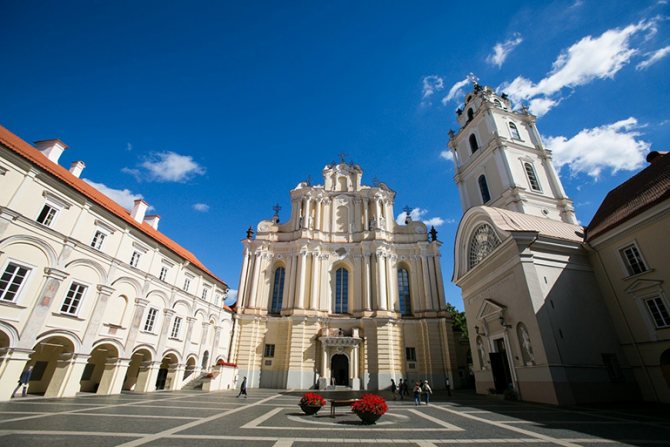
Vilnius University is popular.
After 10th grade, students can enter a vocational school. The training lasts 1-2 years. Higher education is obtained at academies, colleges, universities or seminaries. The following universities are popular:
- Vilnius;
- Vytautas the Great (Kaunas);
- Technical University named after Gedimina (Vilnius);
- Kaunas Technological University;
- management and economics (Vilnius);
- Klaipeda.
The bachelor's degree covers 3.5-4.5 years. The master's degree is designed for 1-2 years. Universities offer doctoral studies, which last 3-4 years depending on the specialization. Each university has quotas for the admission of foreigners, but studies will be paid.
Transport
The country has a well-developed bus service. In Kaunas and Vilnius, fares are paid with a plastic card, which is sold in stores for 1.5 €. There are 2 tariffs in the capital - for 60 and 30 minutes (0.93 and 0.64 €). The price of a 1-month pass is 29 €. Trolleybuses operate only in Vilnius and Kaunas. Due to the narrow streets in big cities, traffic is one-way, making it inconvenient to use a car. Bicycles are gradually gaining popularity. There are 37 bike rental points in the capital.
Ecology
Lithuania is considered one of the most environmentally friendly countries in Europe. Over the past 15 years, the concentration of harmful substances in the atmosphere has decreased significantly. In the south of the state there are many health resorts and resorts. To preserve natural resources, 30 regional and 15 national parks have been created. Lithuanian authorities have developed programs to clean lakes and rivers and reduce waste. But the problems of deforestation and illegal hunting remain unresolved.
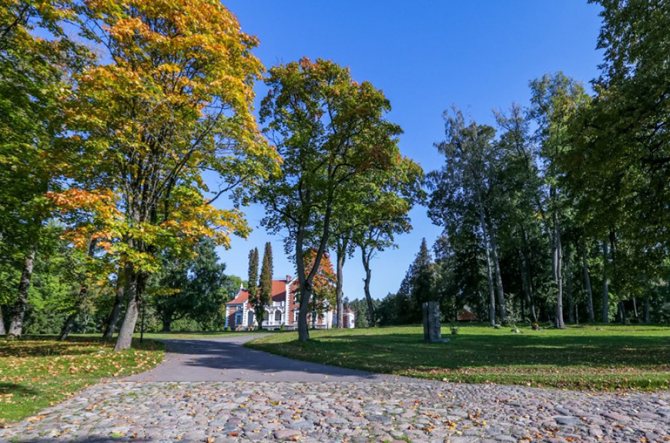
Lithuania is an environmentally friendly country.
Ways to emigrate to Lithuania from Russia in 2021
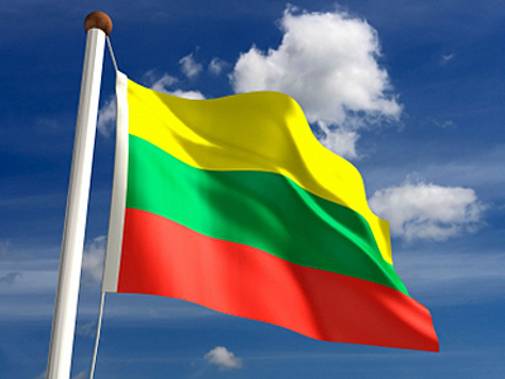
In view of historical events and today's demographic problems, the Migration Service offers favorable conditions. CIS citizens can move to Lithuania in various ways.
The main methods of emigration include:
- Repatriation program.
- Reunion with family.
- Employment with a local employer.
- Business immigration.
- Buying a property.
Repatriation program or family reunification
During the Soviet Union, many Russians immigrated to Lithuania. The largest number occurred in 1989; according to the population census, 344 thousand Russians lived at that time. After the collapse of the USSR, some returned to Russia, which led to a decrease in Russian society. Currently, 177 thousand Russians live in the cities of Vilnius, Klaipeda, Kaunas, and Visaginas. Other relatives live in other countries. Taking this fact into account, the Immigration Service is ready to support foreigners with Lithuanian roots and provide them with a residence permit, with the right to apply for citizenship of the Republic of Lithuania. For this purpose, there is a law on repatriation, which came into force on September 22, 2017.
Documents for registration
To move under the family reunification program, you need to contact the Lithuanian Embassy or the Visa Center in Russia. If the applicant lives in the Baltic states, then you need to visit the Migration Department under the Ministry of Internal Affairs. You will also need to collect a package of documents, which includes:
- a document confirming Lithuanian roots;
- marriage certificate (if available);
- children's birth certificate (if available);
- copy of Russian passport;
- a copy of a foreign passport;
- information about a relative living in Lithuania.
Receipt cost
Under the repatriation or family reunification program, any foreigner can migrate. First, a temporary residence permit is issued. Payment is made in two stages. The first stage includes consideration of the application, for which €86 is paid. Then they pay extra €28 for issuing a plastic temporary resident card.
Registration period
According to the established procedure, the registration period takes from 2-4 months. The decision of the Migration Service is influenced by how the applicant passes the interview and how he answers the test questions. Each situation is considered individually, so the period may be shorter or vice versa.
Validity
A temporary residence permit for emigration is issued for 5 years, after which you need to contact the Migration Department with an application for citizenship.
Employment with a local employer
Finding a job in Lithuania is not easy; this issue is strictly controlled by the Labor Exchange. The government agency analyzes the labor market and annually determines the number of quotas for foreigners. Of course, a lot depends on the candidate on his qualifications, skills, experience, and there is always a chance to find a job.
Russians, Ukrainians, and Belarusians find job offers on social networks, on Russian-language forums, and through recruiting agencies. It is much faster to find a Lithuanian employer through agencies, but you need to pay €150-500 for intermediary services. The most common vacancies that are published are international drivers, builders, logisticians, mechanics, welders, and seamstresses. Having such experience, it is easier to emigrate.
Lithuania is also interested in scientists, so the Migration Service easily and quickly issues visas for people with outstanding abilities who want to move.
Documents for registration
The main documents required from a foreign worker are:
- diplomas or certificates of completion of courses - all those documents that confirm the required qualifications;
- a certificate from a previous place of work, recommendations, a copy of the work record book - to confirm work experience from one year to 2 years;
- copy of Russian and foreign passport, personal information.
The employer himself takes the package of documents along with the new employee’s application to the Labor Exchange.
Receipt cost
Most companies pay all expenses of a foreign worker during employment and also provide housing and food. Such clauses are prescribed in the employment contract and should be read carefully.
Registration period
Before documents are submitted to the Labor Exchange, an advertisement for an open vacancy is published for 5 working days. If no one among the locals responds, then the place remains with the foreigner. The labor exchange issues a work permit, and a national D visa is issued within 15 days.
Validity
The national visa is valid for one calendar year. Next, you need to extend the contract and apply for a residence permit.
Business immigration or real estate purchase
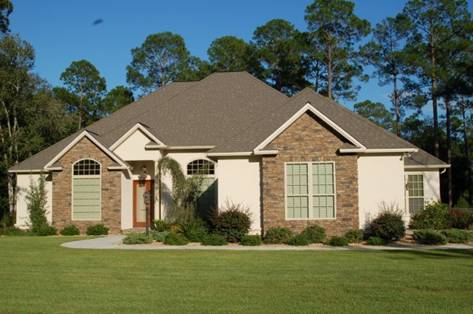
The Republic of Lithuania ranks 14th in terms of ease of doing business. The conditions are quite favorable, even ordinary people without a lot of capital can open a small business and move to a residence permit. According to the law, the authorized capital of a closed joint-stock company must be €2,900; for a joint-stock company the threshold is set at €43,450. For all businessmen, a rule has been established that it is mandatory to employ 3 Lithuanians.
If you have no plans to have your own business, then you can buy a share in a Lithuanian company, by law 10% of shares. It is difficult to say in which industry it is easier to develop a business; you should conduct marketing research or consult with specialists.
You can move to Vilnius, Klaipeda, Kaunas through the purchase of real estate. Many people have a desire to live in European countries, and this is the easiest place to emigrate. After all, the cost of housing varies from €60,000 to 125,000, which is affordable for most Russians, as well as for Belarusians who have their own housing in their native state. In Ukraine, the cost of housing is much lower, if you do not take Kyiv into account.
Documents for registration
To obtain a business visa, you will need to confirm your financial solvency using the following documents:
- bank statements, bank statements;
- share purchase and sale agreement;
- information about the presence of entrepreneurial experience;
- a copy of a foreign passport;
- business plan.
To emigrate and obtain a residence permit, you must provide the following to the Lithuanian Migration Department:
- contract for the purchase of real estate;
- a copy of a foreign passport;
- a certificate confirming permanent earnings;
- health insurance.
Receipt cost
The state fee ranges from €114 to €228. There may be additional organizational and registration costs. When contacting legal companies to register a business abroad, the average cost is €800.
Registration period
To complete a transaction to purchase real estate or open a business, you will need to enter on a tourist visa. The registration period is 1-2 weeks. To obtain a residence permit 1-3 months.
Validity
For businessmen, a business visa is initially issued for 3 months, then a permanent residence permit is issued for a period of 5 years. To move, when purchasing real estate, a residence permit is issued for 5 years.
Specifics of local legislation
Since 2021, the country's authorities have tightened migration rules, so obtaining a residence permit has become more difficult. If the applicant's behavior appears suspicious to the authorities, a residence permit will not be issued. But the legislation does not list the criteria that allow such a decision to be made. A person who owes money to the state will not become a resident.
Foreigners have the right to purchase real estate or land. To obtain a residence permit in the republic, at least 7 square meters must be allocated per person. m. Only the Lithuanian side pays the state duty. In the case of renting out housing, a Russian is required to pay income tax (15%). If he buys a patent worth 540 € for the year, income tax is considered paid.
List of in-demand professions in Lithuania for immigrants
In 2021, the professions in demand for immigrants include:
| Professions | Salary, EUR |
| International driver | €1500 |
| Nurse | €700 |
| Engineer | €1300 |
| Builder | €1000 |
| Sales manager | €750 |
| Handyman | €600 |
| Seamstress | €550 |
| Salesman | €650 |
Average salaries in Lithuania
Lithuanian employers pay an average employee €818 excluding taxes. The most common professions are shown in the table:
| Professions | Salary, EUR |
| IT specialist | €1000 |
| Driver | €800 |
| Doctor | €1400 |
| Design engineer | €1300 |
| Civil Engineer | €1200 |
| Police officer | €1000 |
| Firefighter | €900 |
| Translator | €1000 |
| Sales manager | €750 |
| Accountant | €800 |
| Lawyer | €850 |
| Shop assistant | €750 |
| Salesperson in a supermarket | €650 |
The process of obtaining a residence permit in Lithuania
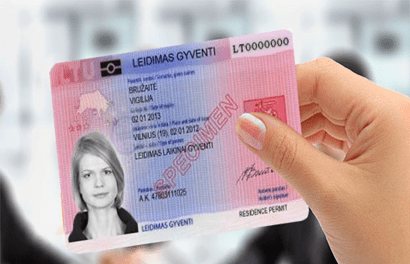
In the Baltics, obtaining a residence permit is easier and processing times are shorter than in other parts of Europe. To move permanently, you will need to use one of the above methods of emigration.
Documents for obtaining a residence permit
You can only emigrate to Lithuania legally. To obtain a residence permit you must:
- sample application;
- information about foreign trips with long-term stay (if available);
- foreign passport;
- photo on a light background according to the Schengen pattern 35*45 mm;
- a document confirming the absence of a criminal record (taken in the home state);
- certificate of real estate availability;
- medical insurance;
- bank statement, proof of availability of funds of at least €350 per day.
Cost of obtaining a residence permit
Standard registration will cost €114; in case of urgency, the cost will double, amounting to €228. Additional costs are possible, depending on the emigration option and intermediary services of legal agencies.
Registration period
According to reviews from those who have moved, the average time to obtain a residence permit ranges from 2-4 months. It is during this period that a decision comes from the Lithuanian Migration Department.
Validity
The validity period of the residence permit will be 5 years, after which it can be extended or an application for permanent residence can be submitted. Non-residents who use the legal method of emigration for a long time can emigrate and apply for permanent residence.
Nuances of obtaining a residence permit
A person submits documents for obtaining a residence permit in person on the territory of Lithuania or at the country’s consulate. To get an appointment, sign up for an electronic queue on the website of the Migration Department. The documents are certified with an apostille and translated into Lithuanian. The review process lasts from 3 to 6 months. The cost of obtaining a residence permit is 87 €. Once approved, the applicant receives a notification.
A department employee takes fingerprints and takes a photo. It takes 10 working days to produce a card.
How to obtain Lithuanian citizenship
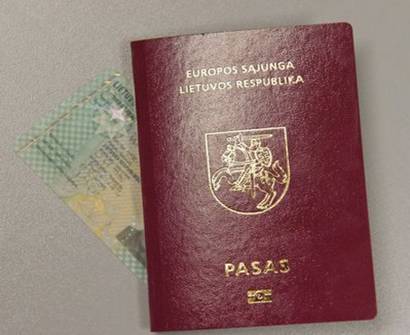
As a result, it will take 10 years to emigrate and become a citizen of the Republic of Lithuania. This is a long time, but a situation that is quite common among European countries. According to the Eurozone standard, it is the ten-year period that shows how decent a new resident is.
Documentation
Basic documents for obtaining citizenship:
- completed application according to the sample;
- documentation confirming legal residence in Lithuania;
- marriage certificate, birth certificate of children (if available);
- bank statements for the last 6 months;
- written renunciation of native citizenship;
- handing over a Russian passport.
In addition to documentation, the emigration process includes passing an exam on knowledge of the Lithuanian language, as well as a history exam.
Price
The cost of citizenship is determined based on personal characteristics, including Lithuanian affiliation. Taking into account the existing roots, the price will be €700, without them €1500.
Registration period
Typically the processing period is 2 weeks. Next, you need to wait for the decision of the Migration Department under the Ministry of Internal Affairs, which usually comes within 6-14 months.
Grounds for deprivation of the status of a citizen of Lithuania
A person ceases to be considered a subject of Lithuania for the following reasons:
- renunciation of Lithuanian citizenship;
- possession of a valid passport of another country;
- citizenship was assigned fraudulently or in violation of local law;
- circumstances have arisen under which the status of citizen cannot be assigned;
- performing military service in another state without permission from the Lithuanian government.
A person must inform the Migration Department or the Lithuanian Consulate about obtaining citizenship of another state. The notification drawn up in Lithuanian and other documents are reviewed within 3 months.
